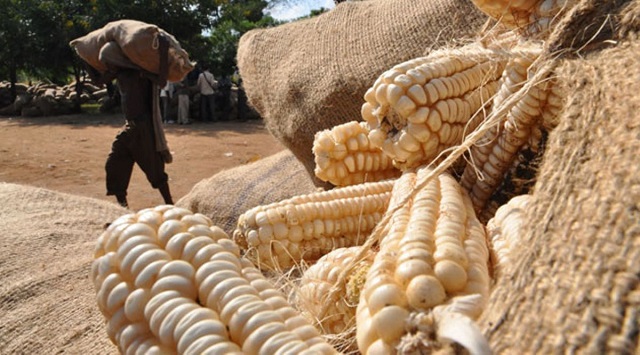
Kampala, Uganda | THE INDEPENDENT | The United Nations has assured Uganda’s grain and cereal industry of an annual market worth US Dollars 4 million.
Uganda’s produce especially maize and groundnuts has been greatly affected by low standards especially due to aflatoxins, a family of toxins produced by certain fungi that thrive on crops such as maize, peanuts, cottonseed, and tree nuts.
The fungi can contaminate crops in the field, at harvest, and during storage especially when they are not kept free of moisture or contact with soil.
Since they also thrive in soil, the crop can be attacked when still growing. An infected grain often has mould-like growths which look greenish to the naked eyes, is odorless, tasteless and colorless, but is suspected of causing death through cancer as well as stunt growth in children.
Aflatoxins are one of the main reasons fronted by the regional and foreign markets including East African countries, and Uganda thinks her neighbours have just taken advantage of it to stifle Uganda’s exports.
The Ministry of Agriculture has been sensitizing farmers to mainly tackle the issue at the harvest-handling stage, but other stakeholders along the value chain like trade and processing, say it needs a sector-wide approach.
The Director of Health and Community Outreach Campaigns at the Operation Wealth Creation, Major Rubaramira Ruranga says the organization has decided to take their campaigns to the millers to widen the effort against aflatoxins.
He says it is not enough to encourage people to produce food and be food-secure, but that the 60% of Ugandans involved in agriculture must be supported to produce for the market so that they are part of the money economy.
Uganda is estimated to have produced 2.8 million tons of maize last year, and exported about 100,000 tons according to figures at the trade ministry.
Ruranga says that they are being cautious not to hurt the growing industry with restrictions, but that after everyone has been sensitized about the quality standards, those violating them will be penalized.
UNBS acting Executive Director Martin Imalingat says the Food and Agriculture Organisation is willing to purchase maize grain worth US Dollars 4 million every year. He however says that if the grain defaults on standards, the country will lose that market.
Imalingat says that while Kenyans continue to buy Uganda’s grain mostly through informal channels, the complaints of aflatoxins and other standard issues affect Uganda’s competitiveness on the global market.
But he says that while the problem exists in many countries, in Uganda it is abetted by the poor post-handling methods.
Imalingat says it is a difficult task because of the nature of the agriculture sector in Uganda which is household-based, informal and largely subsistence.
Imalingat says some millers are fond of converting bad grain into animal feed, but that this is also as dangerous because when it accumulates in the liver of the animal, it will be transferred to the human body which consumed the meat.
He says they are continuing with the testing of millers premises in and around Kampala to determine how much of the businesses are flouting the standards and guidelines.
Jackson Matovu, the spokesperson of the Lubaga Grain Millers Association says the main cause of poor quality standards of the grain products is the lack of capital to invest in standard handling and milling equipment.
He adds that all the stakeholders including the government should tackle the issue of standards, especially aflatoxin jointly, urging the government to create financial products to enable millers to afford modern milling equipment.
*****
URN
 The Independent Uganda: You get the Truth we Pay the Price
The Independent Uganda: You get the Truth we Pay the Price


